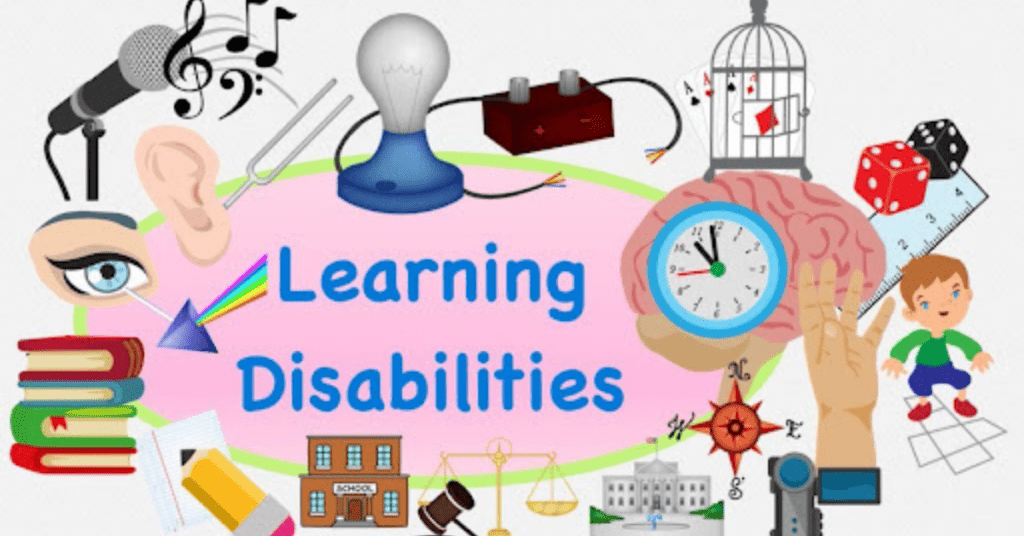A learning disability is a psychological disorder that affects an individual’s ability to read, write, speak, and/or do the math. Learning disabilities are most often diagnosed in children who have difficulty with reading or writing. The causes of this disorder vary from person to person and can include neurological disorders, brain injury due to illness or accident, or exposure to environmental toxins during pregnancy. This blog post will discuss the different types of learning disabilities as well as treatment methods for those suffering from them.
Contents
What Are Learning Disabilities?
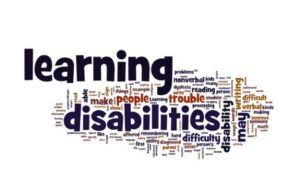
Learning disabilities are neurological disorders that affect a person’s ability to learn and process information. These disorders can impact a person’s skills in reading, writing, math, or listening.
People with learning disabilities may have trouble understanding verbal instructions, remembering things they have been told, or completing schoolwork. They may also struggle with tasks that involve coordination and motor skills.
Furthermore, learning disabilities are not the result of poor parenting or intelligence. They are caused by differences in the brain that make it difficult for people to learn in the traditional way.
How Common Are Learning Disabilities?
It is estimated that between three and five percent of Americans have a learning disability. This means that millions of people are affected by these disorders each year. Approximately 40 percent of people with learning disabilities have a second disability as well.
Out of this population, boys are more likely to have a learning disability than girls. This is because boys are more likely to have a neurological disorder that impacts learning.
Types of Learning Disabilities
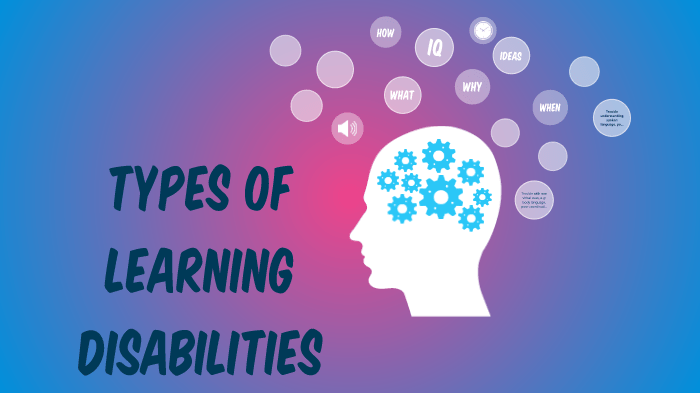
The three main types of learning disabilities are dyslexia, attention deficit disorder, and autism spectrum disorders including Asperger’s syndrome. It is common for individuals to experience more than one type of learning disability.
Dyslexia
This involves difficulty reading due to problems identifying speech sounds or matching them up with letters or words on paper. Dyslexics may also struggle with spelling, writing sentences, repeating things they’ve heard, organizing thoughts in their head before speaking, processing fast-spoken words, comprehending what they hear spoken out loud. In Dyslexia, written information is often seen “upside-down” and backward.
Attention Deficit Disorder
People with ADHD have trouble focusing on specific tasks, controlling their impulses, or sitting still for extended periods of time. They may be easily distracted by noises or move around them, and find it difficult to pay attention in school or during other activities.
Autism Spectrum Disorders
Furthermore, individuals who fall on the autism spectrum disorder range from having mild social difficulties to being non-verbal and isolated from society. Autism spectrum disorders can impact a person’s ability to communicate, understand emotions, and interact with others. Many people with autism also have difficulty completing academic tasks or paying attention in class.
Dysgraphia
Dysgraphia is a learning disability that affects a person’s ability to write. People with dysgraphia may have trouble forming letters, organizing their thoughts on paper, or spelling words correctly.
Dyscalculia
This disorder impacts a person’s ability to understand and complete mathematical tasks. People with dyscalculia may struggle with basic operations such as addition, subtraction, multiplication, and division. They may also have difficulty telling time or understanding money concepts.
Dyspraxia
This disorder involves problems with coordination and planning. People who have dyspraxia may be unable to perform simple movements such as brushing their teeth or tying their shoes, even though they can see a task is done correctly. They also tend to struggle with organization and multitasking activities
Signs of Learning Disabilities
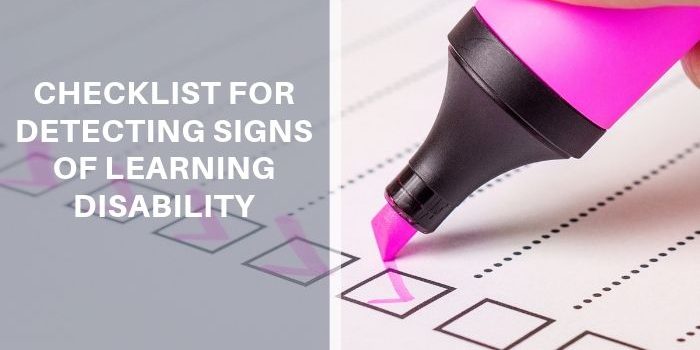
Learning disabilities are often diagnosed in childhood years, but adults should not ignore signs that might indicate learning disorders. If you suspect that your child is struggling in school because of the inability to comprehend information or process it into memory quickly enough for later use, there is likely an underlying problem affecting his learning abilities. These symptoms include :
Trouble In Understanding Actions
This means that a person has trouble following multi-step instructions, or understanding what they are seeing. They may have difficulty with grammar and vocabulary because they cannot understand the literal meaning of words.
Trouble With Oral Language
Furthermore, people who have trouble with oral language often have difficulty expressing themselves verbally. This might make it difficult to hold a conversation or give presentations. They may also struggle with understanding jokes, idiomatic expressions, or sarcasm.
Slow Reading And Writing Speed
This symptom is pretty self-explanatory – people with learning disabilities tend to read and write more slowly than their peers. Often times this makes completing schoolwork difficult and can lead to feelings of frustration and low self-esteem.
Poor Memory Skills
Furthermore, this means a person has difficulty remembering information that was just learned. They may have trouble recalling the main idea of an article or book, and they often forget everyday things like where to find their keys or what time to meet friends for events later in the day.
Difficulty Processing Information
This refers to problems with focusing on reading material and listening well enough to make sense out of it when spoken aloud during lectures at school or presentations by coworkers/bosses. When there is background noise present (like other people talking) this can also interfere with understanding written text and cause frustration when trying to complete homework assignments or understand important messages from others who are speaking directly to them.
Common Reasons of Learning Disability
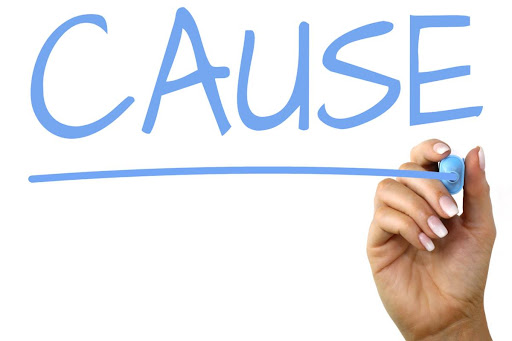
Furthermore, these are some common reasons that a person might develop a learning disability:
Genetic Factors
If one or both parents have a history of dyslexia, dyscalculia, or ADHD then it is more likely that their child will also experience difficulties with academics.
Brain Injury
A traumatic brain injury can impact cognitive abilities and lead to problems with reading, writing, math skills, or concentrating.
Stress And Anxiety
Furthermore, feeling overwhelmed by stressors in life (big tests at school, moving to a new city, divorce of parents) can make it difficult for a person to focus and learn as they usually would. This type of anxiety can be extremely distracting and prevent someone from retaining new information.
Environmental Exposure
This refers to excessive exposure to toxins like lead, mercury, or solvents. These chemicals can affect a child’s ability to learn new information and focus on tasks that require concentration for extended periods of time.
Diagnosis of Learning Disability
Furthermore, there are several ways that a person can know if he/she is having any learning disabilities:
- A Brain Map Test measures electrical activity in the brain to determine processing speed, sensory-motor skills, memory recall abilities, reading comprehension levels, and other cognitive processes.
- An IQ test is administered by professionals who have been trained to evaluate an individual’s ability to reason logically based on verbal or nonverbal responses given during multiple-choice questions. This type of evaluation helps provide information about possible processing problems within the left hemisphere (where language-related functions typically take place).
- A Learning Disability Evaluation provides specific details about academic struggles faced by students at school. Teachers will often complete this form after observing patterns related to difficulty understanding written material presented orally/visually, completing written assignments within allotted timeframes, and participating in class discussions without having to be prompted excessively.
Treatment of Learning Disabilities
There are many treatment options for children with learning disabilities.
Medications
Medications like Ritalin and Adderall can help increase focus and decrease impulsiveness in individuals who have ADHD.
Therapies
Furthermore, there are some therapies options as well, which can help a child overcome their learning disabilities.
Behavioral Therapy
This approach helps students learn new strategies for completing schoolwork, organizing their time, and regulating their emotions.
Occupational Therapy
OT can help improve fine motor skills, sensory processing abilities, and handwriting abilities. This type of therapy is often recommended for children who have difficulty with writing tasks or completing other activities that require manual dexterity.
Speech And Language Therapy
SLT can assist students in improving vocabulary, pronunciation, reading comprehension, oral expression/comprehension skills, and written expression/comprehension skills. Many times this form of therapy is for children who have difficulties with language-based tasks.
Coping Up With Learning Disabilities
There are many methods to cope up with learning disabilities. These skills or ways are apart from treatment methods.
Being Self-Advocacy
This means that students need to be their own advocates when it comes to schoolwork. They should speak up if they don’t understand something or feel like they are struggling in any way. It’s important for kids with LDs to have a voice and let teachers and other professionals know what strategies help them learn best.
Keeping Positive Self-Image
It’s crucial for children with LDs to have a positive self-image. This means accepting themselves for who they are, despite their learning disabilities.
Having Positive Attitude
Furthermore, having a positive attitude, even when things aren’t going well, can help children who have LDs face challenges with more confidence and determination. This will also ensure that they are able to continue working towards their goals throughout the years without giving up too early or easily on themselves because of struggles related to learning disabilities.
Practicing Organization Skills
Organization skills can help reduce stress and anxiety. These are common symptoms of learning disabilities. Having a designated area for homework, having specific times set aside each day for studying, and using color-coded folders/notebooks can all be helpful strategies.
Having Peer Support
Keeping friends who understand what it is like to struggle with academics can be very beneficial. These peers can provide support emotionally and offer helpful tips on how to manage schoolwork.
Tutoring Services
Tutoring services are available for students of all ages and abilities. A tutor can help a student work on specific subjects they are struggling with. This can help to gain more general academic support. There are many types of tutoring programs, including in-home and in-school services.
Identifying Child’s Strengths
Furthermore, identifying a child’s strengths is an important step to helping them overcome their learning disabilities. Including positive reinforcement in daily routines can help build self-esteem and improve academic performance.
Keeping Track of Progress
Keeping track of a child’s progress will help parents and teachers understand how effective different treatment plans have been. Document specific academic struggles as well as steps that can overcome these difficulties. These can be very beneficial in the future if an individual needs additional assistance or accommodations.
Conclusion
The brain is an incredible organ that can do many things. You cannot replace your brain, there are ways to cope with a disability. A learning disability may not have any physical effects on your body but it will affect how you learn and process information in school or at work. There are many different types of disabilities which range from dyslexia to autism spectrum disorder.
Therefore, learning disabilities are nothing to be ashamed of. We hope this blog post has helped you understand the difference between learning disabilities and intellectual disability, what causes them, how they affect children’s lives, and more. Some kids may actually find it easier than others to figure out these skills in order to cope up but however, if you feel like your child is struggling then please seek professional advice immediately.
If you are looking for affordable Online Counseling MantraCare can help: Book a trial therapy session
